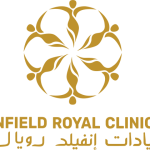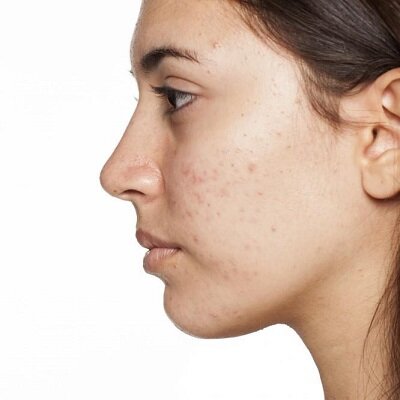Acne is a common skin condition that affects many individuals at some point in their lives. Understanding the various stages of acne is essential for effective Acne Treatment Oman, especially in places like Oman, where humidity and skin types can influence acne severity. This article will explore the different stages of acne, their characteristics, and the treatments available to address them.
What Are the Different Stages of Acne?
Acne develops in several stages, each with distinct characteristics. Identifying these stages is crucial for selecting the appropriate treatment method.
Stage 1: Non-Inflammatory Acne
At this initial stage, acne manifests as comedones, which are either open (blackheads) or closed (whiteheads).
- Characteristics:
- Blackheads are small, dark spots on the skin that result from clogged pores. The dark appearance is due to the oxidation of melanin when exposed to air.
- Whiteheads are small, flesh-colored bumps caused by blocked pores under the skin’s surface.
- Treatment:
- Gentle exfoliation can help remove dead skin cells and prevent clogged pores. Over-the-counter (OTC) treatments containing salicylic acid or benzoyl peroxide can effectively treat non-inflammatory acne.
Stage 2: Inflammatory Acne
As the condition progresses, inflammation can occur, leading to red and swollen pimples. This stage may present as papules and pustules.
- Characteristics:
- Papules are small, raised, red bumps that are tender to the touch.
- Pustules are similar but contain pus at their tips, appearing white or yellow.
- Treatment:
- Treatments for inflammatory acne typically include topical retinoids, which help reduce inflammation and promote skin cell turnover. In some cases, dermatologists may prescribe antibiotics to reduce bacterial growth and inflammation.
Stage 3: Cystic Acne
Cystic acne represents a more severe form of acne, where deeper skin layers become inflamed, leading to painful, swollen cysts.
- Characteristics:
- Cysts are large, painful lumps beneath the skin's surface that can be red or inflamed. They often take longer to heal and can lead to scarring if not treated properly.
- Treatment:
- For cystic acne, dermatologists may recommend systemic medications, such as oral antibiotics or hormonal treatments. In severe cases, isotretinoin (commonly known as Accutane) may be prescribed to significantly reduce oil production and prevent future breakouts.
Stage 4: Acne Scarring
Once acne lesions heal, they can leave behind scars, affecting an individual’s appearance and self-esteem.
- Characteristics:
- Scarring can appear as dark spots, indentations, or raised areas on the skin. The severity and type of scarring can vary based on individual skin types and the degree of acne.
- Treatment:
- Treatment options for acne scars include chemical peels, laser therapy, and microneedling. These methods can help improve skin texture and promote new skin growth.
Lifestyle Changes to Support Acne Treatment in Oman
While medical treatments are essential, lifestyle changes can significantly enhance the effectiveness of acne treatments.
Skincare Routine
Maintaining a consistent skincare routine tailored to your skin type is vital. Here are some tips:
- Use non-comedogenic products to prevent clogged pores.
- Cleanse your face twice daily to remove excess oil and dirt.
- Incorporate a gentle exfoliant to slough off dead skin cells weekly.
Diet and Hydration
What you consume can impact your skin's health. Consider the following:
- Hydration: Drink plenty of water to keep your skin hydrated from within.
- Diet: A balanced diet rich in fruits, vegetables, and whole grains can support skin health. Avoid excessive sugar and dairy, which some studies suggest may exacerbate acne.
Sun Protection
Protecting your skin from sun damage is crucial, especially in sunny climates like Oman. Use a broad-spectrum sunscreen daily to shield your skin from harmful UV rays and prevent further irritation from acne treatments.
The Role of Dermatologists in Acne Treatment
When over-the-counter treatments fail, consulting a dermatologist is essential.
Professional Assessment
A dermatologist can evaluate the severity of acne and recommend personalized treatment plans. They can provide insights into:
- The appropriate medications based on individual needs.
- Potential underlying causes of acne, such as hormonal imbalances.
Advanced Treatment Options
Dermatologists have access to advanced treatments not available over the counter, such as:
- Chemical Peels: To exfoliate the top layer of skin and reduce acne lesions.
- Laser Treatments: To target specific areas and promote healing.
- Light Therapy: To reduce inflammation and kill acne-causing bacteria.
Conclusion
Understanding the different stages of acne is critical for effective treatment. With various treatment options available, including OTC products and professional interventions, individuals can manage their acne effectively. Those in Oman can benefit from tailored approaches that consider the local climate and skin types. By combining medical treatments with lifestyle changes and professional guidance, it is possible to achieve clearer, healthier skin.






Comments